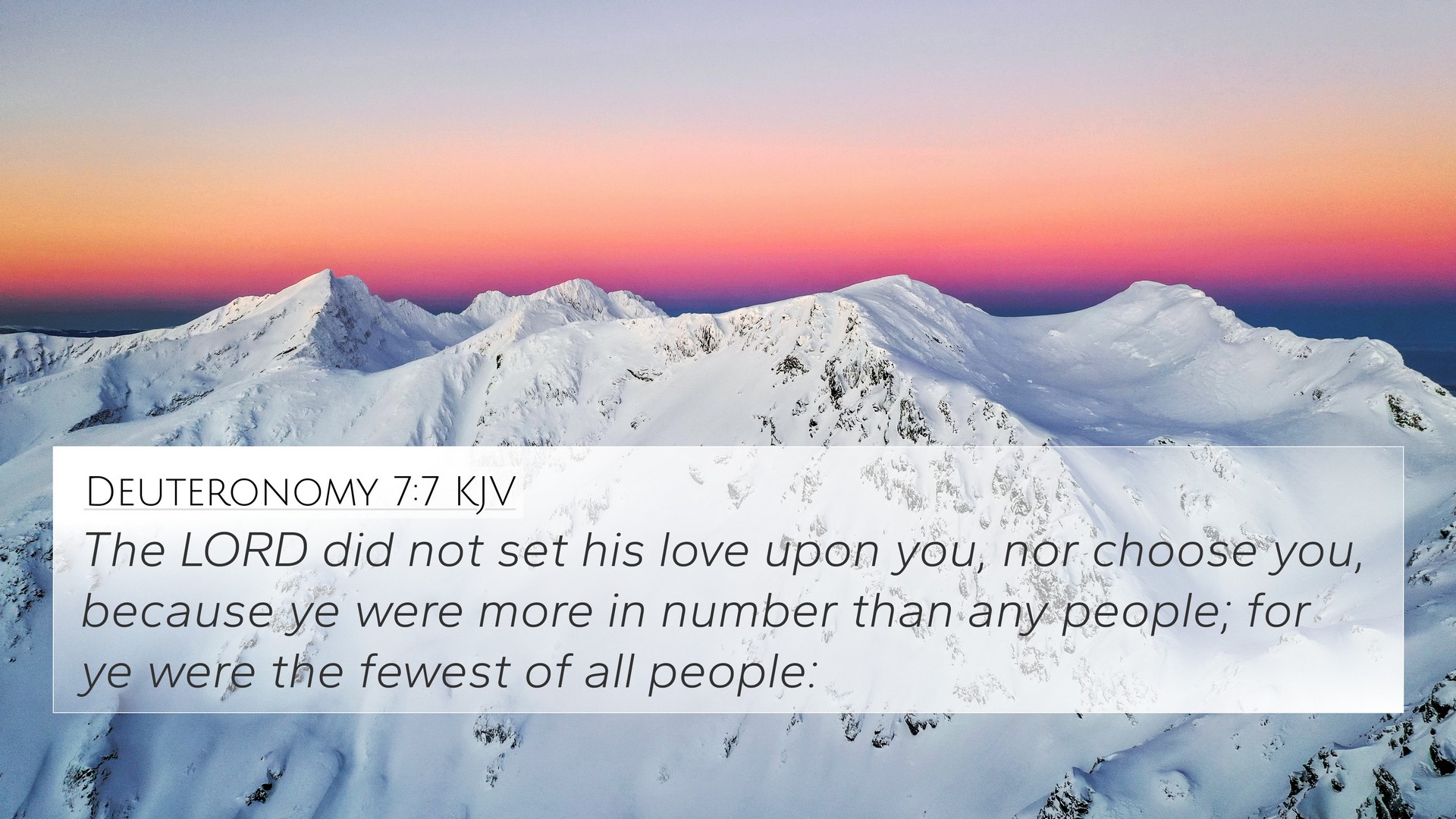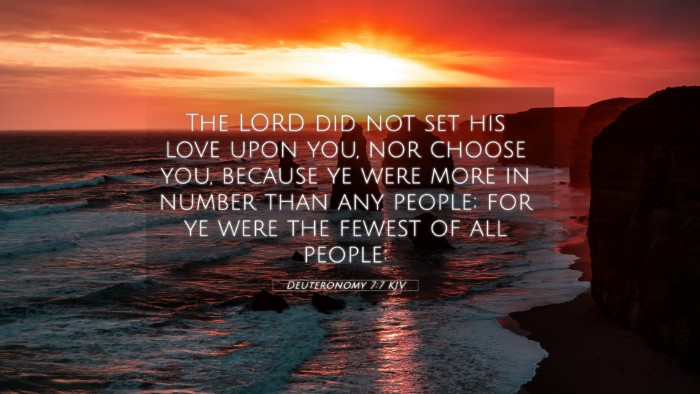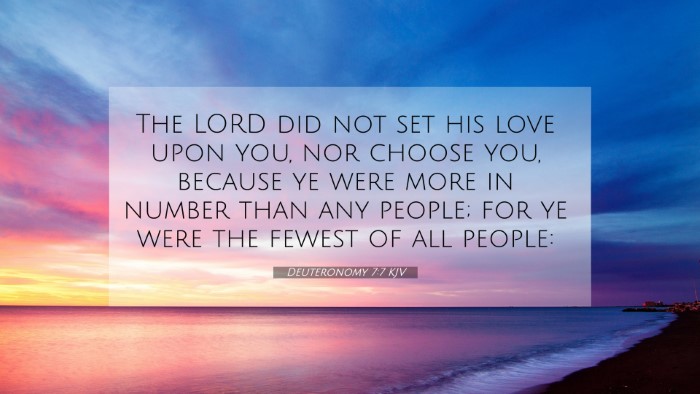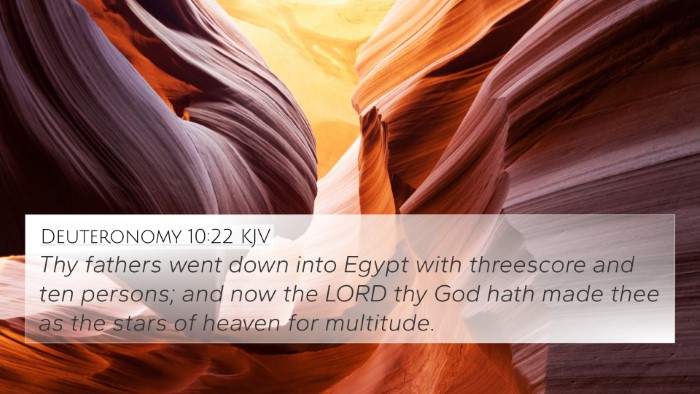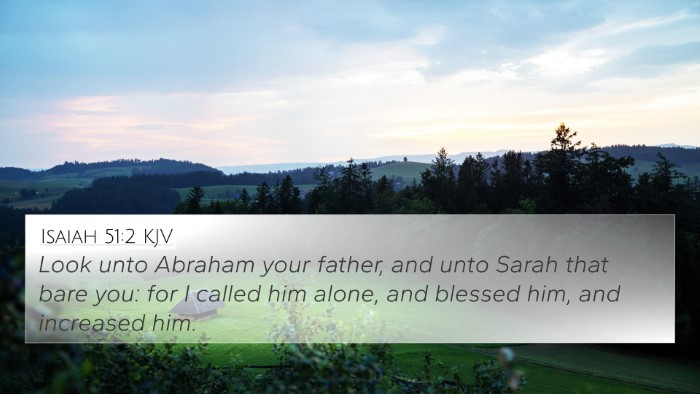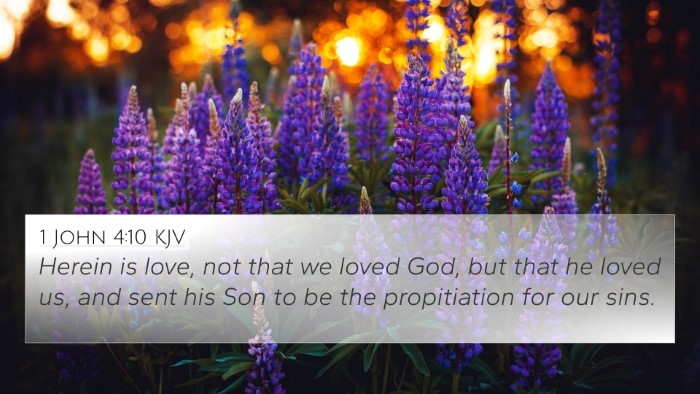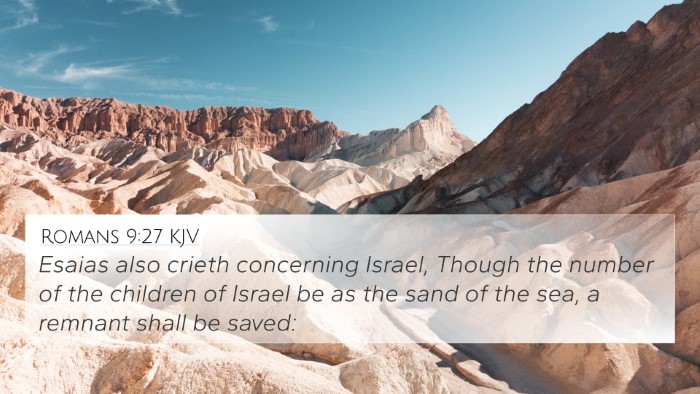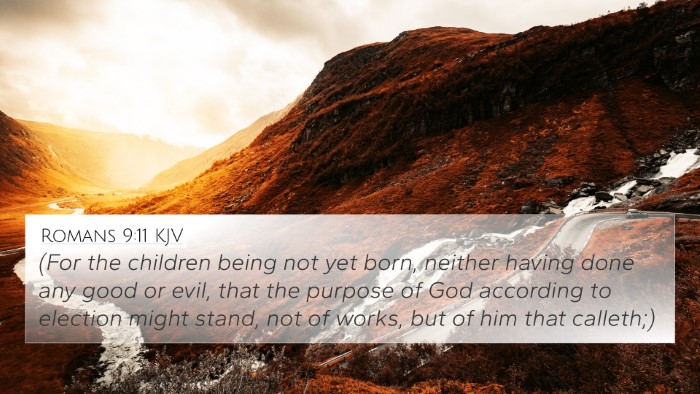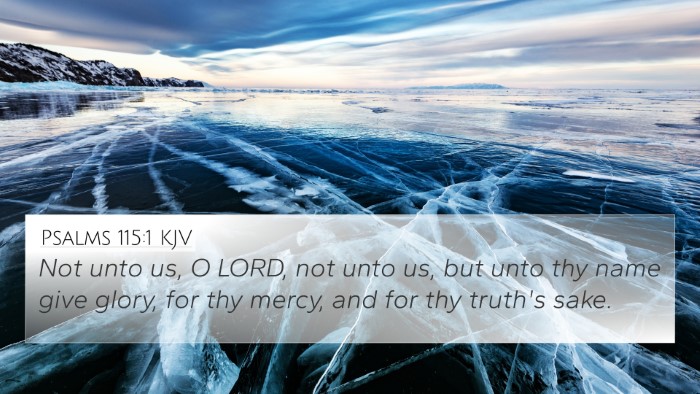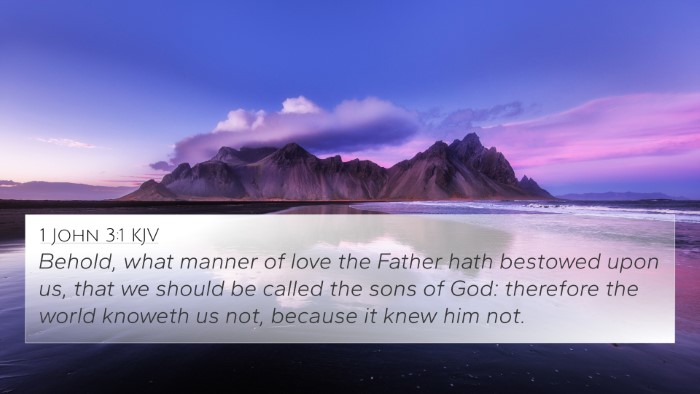Understanding Deuteronomy 7:7
Verse: Deuteronomy 7:7 - "The LORD did not set His love on you nor choose you because you were more in number than any other people, for you were the least of all peoples."
Meaning and Context
This verse emphasizes the divine choice of Israel not based on their greatness or number but rather on God's covenant love and faithfulness. It reflects a central theme of God's grace towards His people. Several public domain commentaries shed light on this pivotal scripture:
-
Matthew Henry:
Henry emphasizes that God's choice of Israel was not due to their merits or numbers but by His sovereign will. He highlights the notion that God often chooses the weak and the humble to demonstrate His power and grace.
-
Albert Barnes:
Barnes discusses the idea of God's mercy in choosing a seemingly insignificant people to serve as His own. This choice showcases God's grace in action—upholding His promises irrespective of human qualifications or status.
-
Adam Clarke:
Clarke notes the importance of understanding that God's covenant with Israel illustrates His unfailing love and faithfulness. Clarke points out that the insignificance of Israel serves as an example of how God's grace operates outside worldly measures of strength and worth.
Thematic Bible Verse Connections
Deuteronomy 7:7 offers profound insights that connect to various other scriptures. Here are some related verses that enrich the understanding of God's unconditional love and selection:
- Romans 9:16: "So then it does not depend on human will or exertion, but on God, who has mercy." - This verse mirrors the theme that God's choice is based on His mercy.
- 1 Corinthians 1:27-29: "But God chose the foolish things of the world to shame the wise; God chose the weak things of the world to shame the strong." - Highlighting that God’s choosing often goes against worldly standards.
- Ephesians 1:4-5: "For he chose us in him before the creation of the world to be holy and blameless in his sight. In love he predestined us for adoption to sonship through Jesus Christ." - A discussion on divine selection across time.
- Galatians 4:9: "But now that you know God—or rather are known by God—how is it that you are turning back to those weak and miserable forces?" - Emphasizing the recognition of God's loving knowledge over human efforts.
- Deuteronomy 9:4-5: "Do not say to yourself, 'The LORD has brought me here to take possession of this land because of my righteousness.' No, it is on account of the wickedness of these nations that the LORD is going to drive them out before you." - A reminder that possession of blessings is not due to righteousness but God's purpose.
- Jeremiah 31:3: "The LORD appeared to us in the past, saying: 'I have loved you with an everlasting love; I have drawn you with unfailing kindness.'" - Illustrating God's enduring love.
- Deuteronomy 14:2: "For you are a holy people to the LORD your God, and the LORD has chosen you out of all the peoples on the face of the earth to be his people, his treasured possession." - Reinforcing the theme of divine selection.
Comparative Bible Verse Analysis
The significance of Deuteronomy 7:7 lies in its portrayal of God's character and the nature of His relationship with Israel. The following points illustrate the critical comparative analysis of this text:
-
Understanding Grace:
Deuteronomy 7:7 and Ephesians 2:8-9 ("For by grace you have been saved through faith...") similarly convey that salvation and favor are rooted in God's grace, not in human effort.
-
Focus on Humility:
Acts 10:34-35 ("God shows no favoritism but accepts every nation...") aligns with the theme of God’s impartiality in His selection criteria, highlighting the universality of His love.
-
Divine Love and Election:
Romans 8:33-39 discusses God's unwavering love for His chosen people, complementing the assertion made in Deuteronomy regarding God’s love underpinning His choice.
Tools for Bible Cross-Referencing
For those interested in exploring the connections and themes of such scriptures, various Bible study tools can assist in effectively cross-referencing biblical texts:
- Bible Concordance: A comprehensive tool to locate words and phrases to find related verses.
- Bible Cross-Reference Guide: Helps identify references across different parts of the Bible.
- Cross-Reference Bible Study: A method of studying the Bible through interrelated verses.
- Visit Tools for Identifying Connections: Using different resources, such as interlinear and parallel Bibles, can expose intricate relationships within scripture.
- Bible Reference Resources: Online databases and physical reference books that enhance understanding.
Inter-Biblical Dialogue
Deuteronomy 7:7 opens discussions and correlations with other verses, establishing a dialogue across the Old and New Testaments. Here are some insights on inter-Biblical connections:
- Old Testament Emphasis: The focus on God's electing grace in Deuteronomy parallels the New Testament revelations centered on Christ’s redemptive work.
- Prophetic Links: The theme of divine love and choice reverberates throughout the prophetic books, where God continuously affirms His commitment to His people.
- Juxtaposition with Gospels: The Sermon on the Mount (Matthew 5-7) reflects God's value systems that often contrast societal expectations, resonating with Deuteronomy's notion of humility.
Conclusion
Deuteronomy 7:7 is a profound reminder of God's sovereign choice, highlighting themes of humility, grace, and the deep, affectionate commitment of God towards His people. By leveraging cross-references and considerations within the broader biblical narrative, one gains a fuller understanding of this foundational text as it speaks to God's unchanging character and His plans for humanity.
